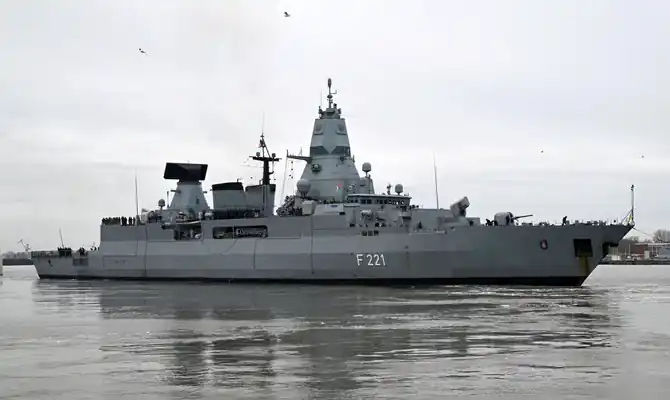In the latest escalation of tensions along the Red Sea shipping route, Yemen’s Houthi rebels have claimed responsibility for a series of attacks targeting commercial vessels.
According to reports from a British maritime agency and the US military’s Central Command (CENTCOM), the attacks occurred on Monday, with one Greek commercial vessel, the MV Cyclades, among the targets.
CENTCOM stated that the Houthis launched three anti-ship ballistic missiles and three drone strikes at the MV Cyclades, which was flying the Maltese flag at the time of the attack.
Fortunately, initial reports indicate that there were no injuries, and the vessel was able to continue its journey safely.
Earlier in the day, the UK Maritime Safety Agency (UKMTO) reported explosions near a commercial ship sailing off the coast of Yemen, northwest of Mokha. Thankfully, the vessel and its crew were reported to be safe following the incident.
Maritime security firm Ambrey suggested that the Malta-flagged container ship was likely targeted due to its operator’s trade relations with Israel. This assertion highlights the geopolitical complexities underlying the conflict in the region.
The Houthis, who control the Yemeni capital Sanaa and a significant portion of the country’s Red Sea coast, have been increasingly active in targeting ships since November. They claim these actions are in solidarity with Palestinians amid the Gaza conflict, further complicating the situation.
CENTCOM also reported that US forces intercepted an unmanned aerial vehicle (UAV) over the Red Sea, which was on a flight path towards the USS Philippine Sea and USS Laboon.
The UAV posed an imminent threat to US, coalition, and merchant vessels in the region. Fortunately, no injuries or damages were reported as a result of the interception.
In response to these attacks, the United States and Britain have conducted multiple strikes on Houthi targets in Yemen since January. However, the effectiveness of these retaliatory measures in deterring further aggression remains uncertain.
The recent spate of attacks underscores the fragile security situation in the Red Sea region and the potential consequences for international shipping lanes.
As tensions continue to simmer, there are growing concerns about the impact on global trade and maritime stability. Efforts to de-escalate the situation and find a diplomatic resolution to the conflict are urgently needed.
Without a concerted effort to address the underlying grievances and security concerns, the cycle of violence risks spiraling further out of control, with devastating consequences for all parties involved.
In the meantime, maritime authorities and commercial shipping companies must remain vigilant and take necessary precautions to ensure the safety of vessels and crew navigating the Red Sea waters amid heightened tensions.
This article was created using automation and was thoroughly edited and fact-checked by one of our editorial staff members

